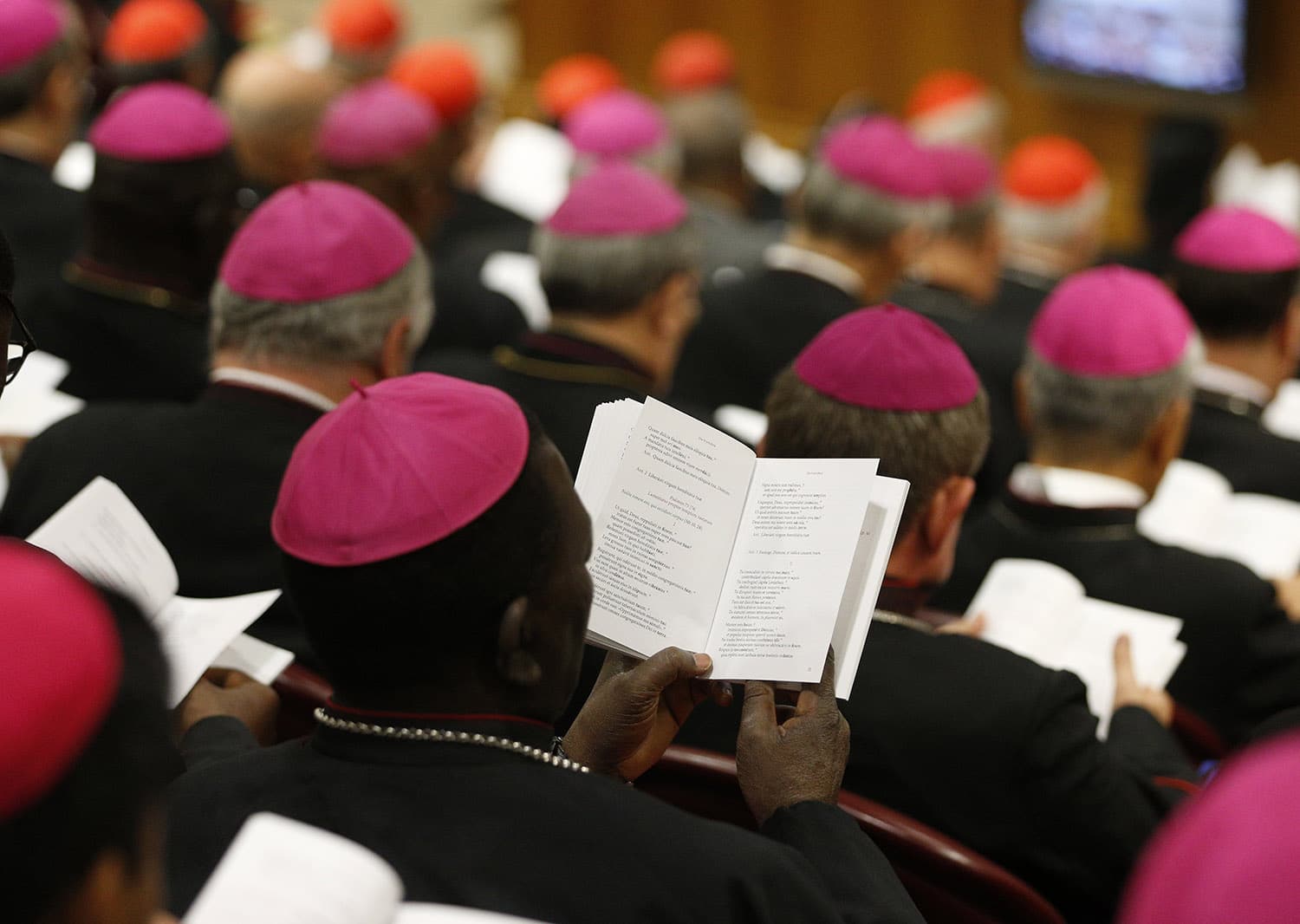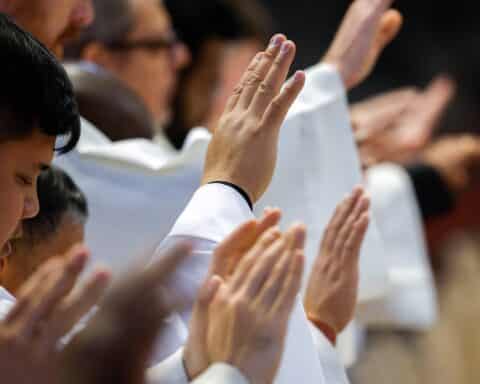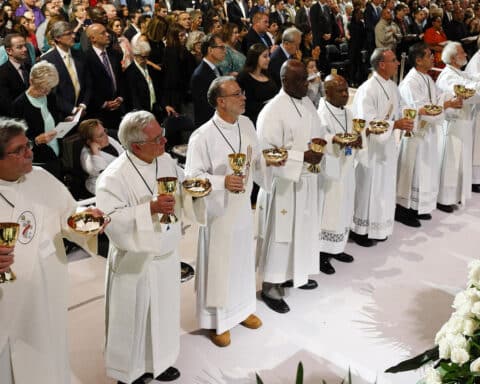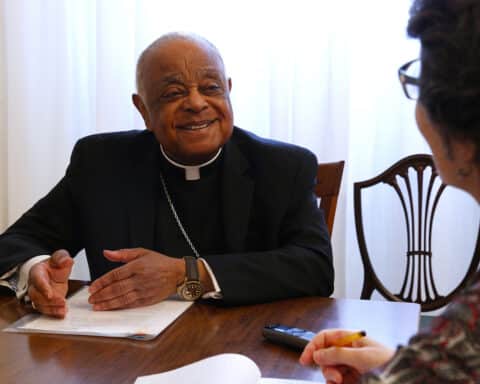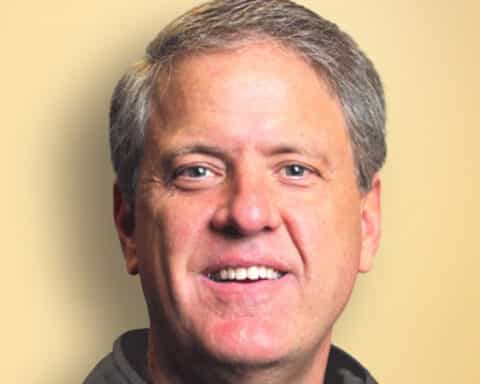Back when the synod on synodality was only an item on Pope Francis’s to-do list, I wrote a column saying conservative Catholics like myself should get on board the pre-synodal bandwagon instead of standing on the sidelines making negative comments. Otherwise, I said, the synod on synodality could fall into liberal hands.
With the first assembly of the synod fast approaching in October, that is still a matter of concern. But however that may be, for the longer pull, it remains reasonable to hope that clear thinking will make a difference as the Church struggles to assimilate synodality into its decision-making process. I offer what follows with that hope in view.
Pertinent questions
Speaking last month to the American bishops in Orlando, then-Archbishop, now newly named Cardinal Christophe Pierre, the papal nuncio, declared the purpose of synodality to be “to make our evangelization more effective.” That sounds great. But evangelization of whom on behalf of what?
The synodal Church, we often are told, will be a body that directs its evangelizing energies especially to people on the “peripheries.” As Cardinal-designate Pierre said, “If they ‘come to church’ to encounter Christ, it will be because Christ has first come to them.”
As to the content of the evangelizing message, I find a powerful answer in Pope St. John Paul’s memorable 1998 encyclical Fides et Ratio (“Faith and Reason”). There, the pope identified certain “fundamental questions” said to be “pervasive” in all times and places: “Who am I? Where have I come from and where am I going? Why is there evil? What is there after this life?”
But do people really ask themselves these questions today? And if the honest answer is that in many cases it doesn’t look like it, isn’t that because contemporary secularism prevents countless people from thinking seriously by immersing them in a sensate culture of images, sounds and frivolous messages that leave them too distracted to come to grips with matters of ultimate importance?
Three pieces of advice
Supposing that is a reasonably correct reading of the situation, it points unavoidably to the conclusion that the fundamental evangelizing task for a synodal church must be to pierce this distracting cultural fog, raise the old questions of meaning and value out on the peripheries, and announce anew that today, as always, the answer to them is Christ.
In a notable article “Synodality and the Second Vatican Council”, published in a journal called The Thomist, Catholic University of America theologian Christopher Ruddy makes the important point — largely overlooked, it seems, by synodality’s conservative critics — that “the ecclesial renewal set in motion by the council is now reaching a new, mature, and perhaps decisive stage.”
But for the synodal process to produce the good fruit at which its sponsors aim, Ruddy writes, certain things — he calls them “prunings” — are necessary. He names three.
First, “the synod and its preparation need to be transparent and free from manipulation.”
Second, “‘Dialogue’ and ‘inclusion’ are not stand-alone, self-evident concepts but must respect the doctrinal boundaries established by the scriptural canon and rule of faith.”
Third (and “most fundamentally”), synodality “must not be conscripted into service as a cover for doctrinal change … on matters of human sexuality, sacramental discipline and doctrine, and ordained ministry.”
Ruddy concludes that the “full vision of Vatican II” contains “both helpful stimuli and useful correctives to the ongoing synodal process.” Let us hope — and pray — that both in October and beyond the managers of synodality will draw freely on those sources and show proper respect for their integrity.

